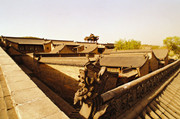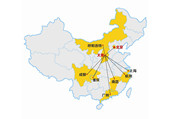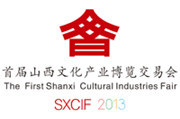The First World Assembly of Jin Merchants held
By Li Xiaonan ( chinadaily.com.cn )
Updated: 2012-08-22
The First World Assembly of Jin Merchants held in the city of Taiyuan, Shanxi province on August 19, attracted many representatives of overseas chambers of commerce and business associations, Jin financiers, entrepreneurs from abroad, and heads of the world's Top 500 companies.
This was the first conference of its kind devoted entirely to the Jin merchants sprit, which refers to the merchants of Shanxi province, and who are known as China’s earliest traders, dating back as far as the Warring States period (BC 475-221).
It consisted of two parts: the first, whose theme was "Development" included speeches given by Jin merchants from China and overseas, and various leaders, and a reading of the "Jin Merchants Declaration".
The theme of the second part was the "New Jin Merchants Sprit" and it included a discussion by scholars and the new generation of Jin merchants of how to pass on the old mercantile sprit and work together for a new prosperity.
The gathering also attracted many foreign entrepreneurs who have an interest in Shanxi province for investment purposes. There were also deputies of Jin merchants from Hong Kong, Macao, and the Mainland also taking part, including the vice presidents of provincial chambers of industry and commerce.
Jin merchants, also known as Shanxi province merchants, were the most powerful and prominent merchant guilds during the Ming and Qing dynasties. In the early of the reign of Emperor Hongwu (1368-1398) in the Ming Dynasty, Shanxi natives began to supply grain to the northern military frontiers with the aim of getting a government permit for the more profitable trade of salt, a necessity and abundant resources in the province.
Salt trading was how the Shanxi merchants initially accumulated their huge wealth and came to fame. By the time of the Qing Dynasty, the guild had established close ties with the government through continuous tributes, thus becoming an even more powerful capital force.




